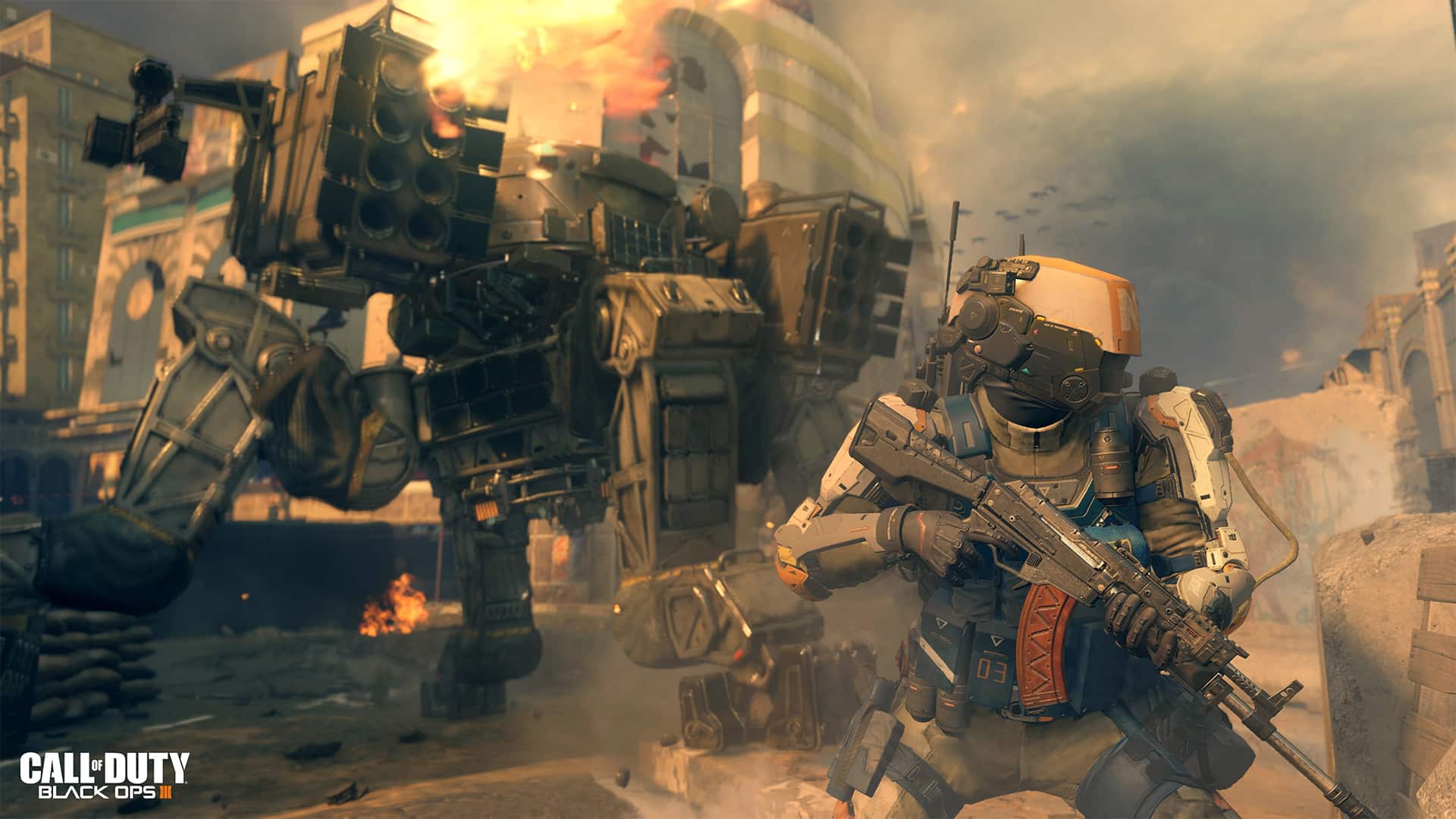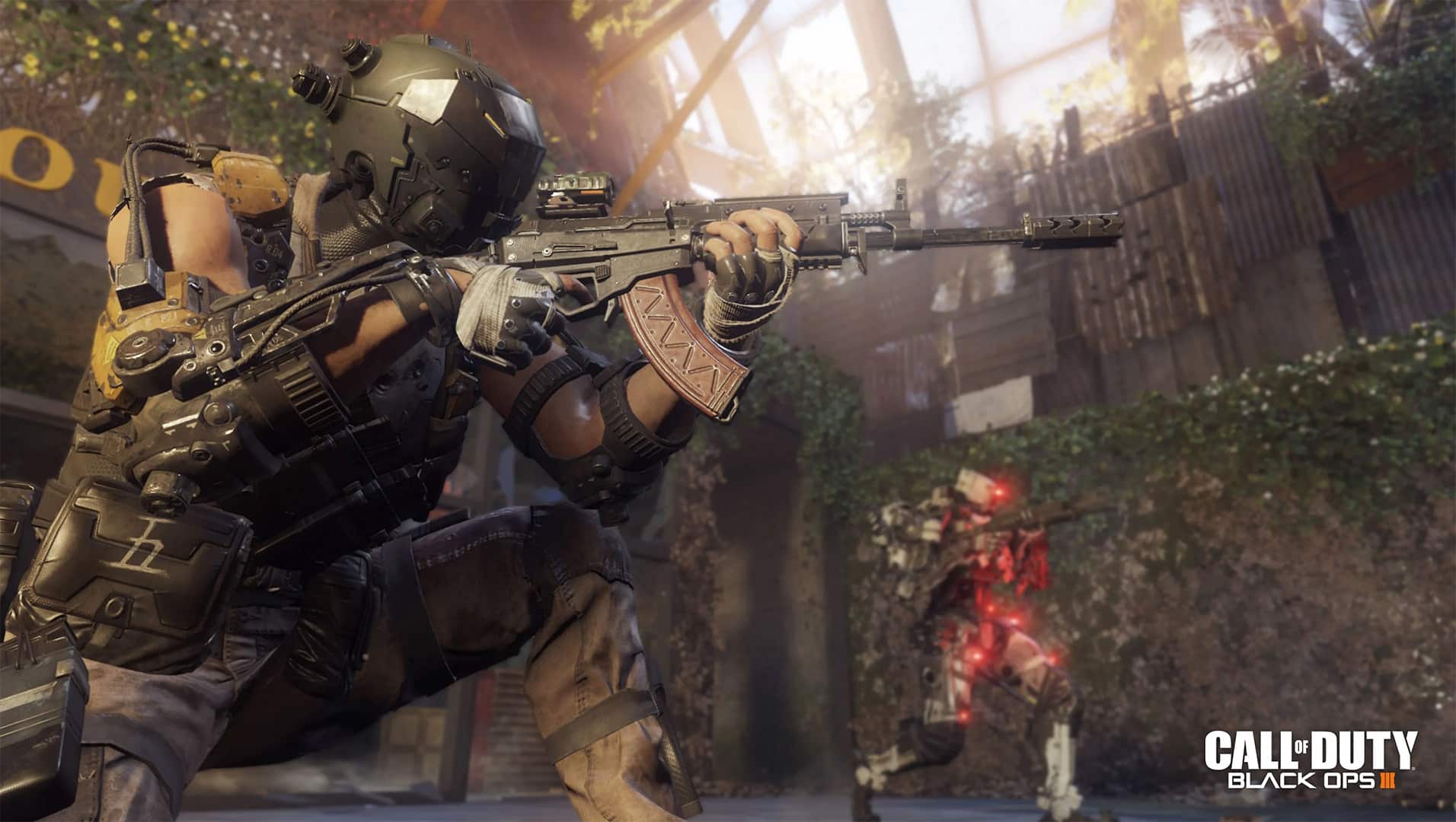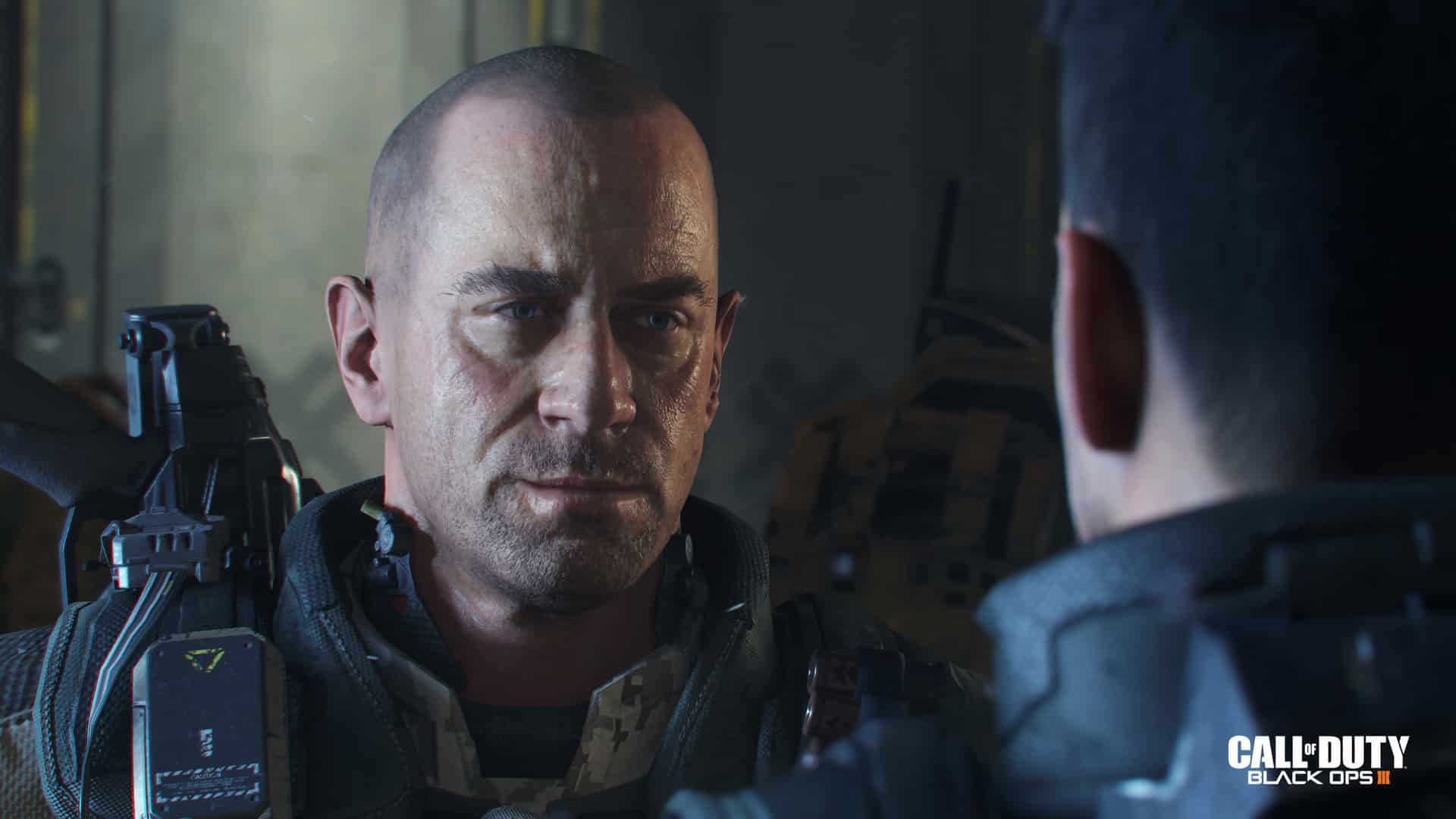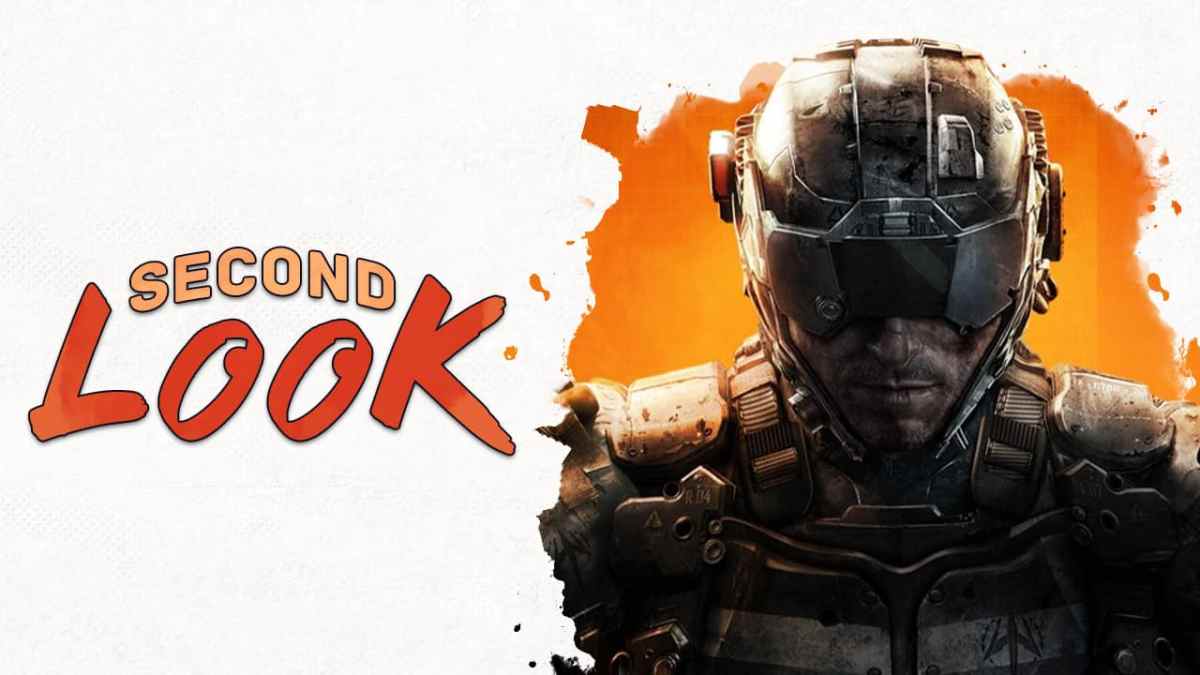“This is your last chance! Show me what you’re made of! Fight it! Fight it!” That parting line from Treyarch’s Call of Duty: Black Ops III has stuck with me for half a decade now. It’s simple, but in the context of the game, it’s the ultimate thesis of the original Call of Duty: Black Ops trilogy. It’s a seemingly endless war not of nations or ideologies, but the rampant menace of paranoia. Across all three games, our own worst demons bring about the near destruction of the world, but Black Ops III goes further and offers a glimpse of hope.
It’s hard to make misery engaging, to present a game where players fail despite every attempt to turn the tide, wallowing deeper into an unpleasant quagmire. The Last of Us Part II’s greatest failure was becoming lost in a swamp of discomfort without cutting to the point. You can make misery work in your favor though, which is perfectly demonstrated by the lean, mean, powerful campaign in Call of Duty: Black Ops III.
In many ways, Black Ops III is the The Last Jedi of the Call of Duty franchise. It’s bold, creative, impactful, and headier than I think anyone anticipated. It’s also messy and not as easily digested, demanding thorough examination to get the most out of it. There are actually three major interpretations of what occurs, ranging from it all being a shared dream to the birth of a digital soul that transcends what it means to be human.
That’s not to say Black Ops III isn’t fun on a base level. The wall-running, multiple abilities trees full of cybernetic powers ripped out of Mass Effect and BioShock, drop-in/drop-out co-op, customizable lead protagonist, and fantastic level design make sure of that. You can hack a boss fight and turn the boss into your own personal plaything during a pivotal level. There’s a mission on an oil rig where you can seamlessly become the support vehicle hovering above or the soldier on the ground with four players and no loading screens interrupting you across the entire level — on a gameplay level alone, Black Ops III is a marvel. It’s what it does with that wonderful gameplay that makes it matter.

Black Ops wanted you to doubt your own perceptions. Black Ops II was about not trusting the world. Black Ops III demands you question everything. If you go in expecting a single answer as to what happened, you’ll walk away unsatisfied. Every person I’ve played with has come away with a different perspective on events. Each time, there would be another thread to pull as we’d hunt down rogue cybernetic agent Jacob Taylor and his team. What could’ve just been a bombastic, globetrotting adventure instead takes aim at something deeper.
The world of Call of Duty: Black Ops III is ensconced in distrust. The preceding games’ events have left the world in a technological cold war with heavy air restrictions after the unmanned drone terrorist attacks of the last game. With airspaces restricted and open conflicts too costly, small-scale warfare between specialized cyborg agents and land-based drones dominates this post-modern battleground. Wars are desperate, in your face, and claustrophobic. Instead of World War trenches, you’re sliding and wall-running through rundown megacities and mile-high skyscrapers rampant with corruption.
You aren’t ever inserted somewhere to save the day, often just barely scraping by to accomplish your own goals and get the hell out, consequences be damned. Everyone you work with has their own agenda, arguing and doubting one another, sometimes with good reason. When it’s revealed some sort of digital contaminant is infecting you and your fellow cyber-soldiers, the only person on your team you can trust is CIA spook Kane, whom your augmented partner Hendricks vehemently distrusts. But is that actually Hendricks’ thinking, or is it the virus? Who’s really pulling the strings?

As the conspiracy unravels, Black Ops III stretches all the way back to Treyarch’s first Call of Duty titles, weaving the deadly Nova 6 chemical, World War II warfare, and even their famous zombies mode into the story in ways I dare not spoil. This is the sort of game where an entire level takes place in an allegory for a dying woman’s mind struggling to make sense of how she got to this point. It’s one of the only Call of Duty games where your protagonist has a defined personality and makes bold choices that some players will disagree with, and yet all of it actually makes sense for the narrative.
The nameless hero of Black Ops III is exactly the type of person the real villains of Black Ops have always wanted: nationalistic to a T, unafraid to get their hands dirty. “I just noticed… you’ve got a lot of blood on you,” Hendricks comments soberly after you’ve executed a gang leader. And it’s because of your actions that Singapore ends up in an open riot as gangs and city officials clash. You help an arguably just cause in Egypt but only trigger more conflict there as well. Behaving like a standard Call of Duty hero gets you nothing but death and destruction, which is why you have to dare to be better.
When you finally track down Taylor, your own grasp on reality is slipping. You can see he’s just a puppet on a string, and it’s only by reaching out to him that he finally comes to his senses. The mastermind at the controls tries to strike him down, but then in the finale, you’re drawn into the network. Everyone else you dragged through hell has either died or been turned against you, but the one person you reached out to, the one time you relented, is there to help: Taylor. Together, you fight back against a menace born of the world governments’ fear of their own citizens.
A character declares, “We need to know who (our) enemies are and what they are planning! That is how we save lives!” Except — that’s not the case. It’s never been the case. It’s giving in to those baser instincts, that primal fear and anger, that has brought the player and all the surviving cast to this desperate point. While the game’s mysterious villain claims to have created a synthetic afterlife, it’s little more than a childish dream born out of hubris. It’s made it clear it too has no qualms with killing. This being is no godly entity, but instead another layer of oversight, another hand twisting its grip around the world.
As the finale plays out, it even starts to strip away who you are, ripping away your voice and using it against you. The harder you fight to stop it, to end the cycle, to prevent it from reigning over the world, the more desperate “your” voice becomes, until it’s screaming the only words it knows that are supposed to calm humans. Like the so-called masterminds that unwittingly created it, this monstrosity has lost sight of what it even means to be human. It’s always the ends justifying the means, but the protagonist makes the ultimate sacrifice. They purge their own internal network. Every shred of who they are is going to fade away… and something new is left in their place.
“What’s your name, soldier?”
“Taylor.”

The finale is wonderfully ambiguous, and as stated above, there are competing far-out theories of how to explain it. And I’m good with that. Technically, Black Ops III is the final piece of Black Ops’ story, taking place further into the future than any game before or since. It leaves the door open for tantalizing possibilities but also offers a solid closing note. Your final moments in the Black Ops-verse are of self-sacrifice, rather than putting the cost on others. You don’t gamble anyone else’s safety, just your own, putting it all on the line to offer that world a chance to finally breathe.
Again, I won’t call it perfect. The game’s attempts at keeping you second-guessing and debating can be out of nowhere and contradictory. The weight of the game’s ambition, after already having scaled back from becoming a full open-world game, is astounding. Though far from perfect, what it achieves is a memorable thrill ride of a sci-fi conspiracy thriller that I’ve enjoyed several times now. Smarter than it has any right to be, with amazingly replayable gameplay and countless little details to be discovered, Call of Duty: Black Ops III absolutely deserves a Second Look.






Published: Nov 19, 2020 11:00 am